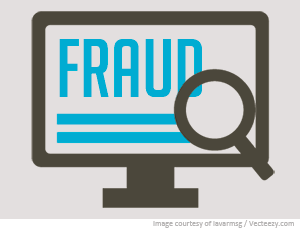
Perhaps you’ve heard…what happens in Vegas, stays on Facebook!
Does anyone remember what the internet was like before Facebook arrived in 2004? The creators of Facebook have stated that their goal was to create a richer, faster way for people to share information about the daily activities of their lives and what was happening around them. It didn’t take long for the concept to catch on because by December that first year, one million people had created their Facebook page. In just five years, Facebook users climbed to 200 million (1) and today its population would make it the world’s largest country, well ahead of the United States in 8th place (2). It’s no surprise that Facebook remains #1 among the top 15 most popular social networking sites (3), with an average 936 million daily active users (4).
While it can be argued that Facebook has been leading the social media revolution, there is no shortage of other social networking sites, social messaging platforms and video-sharing sites with staggering user statistics. Consider just these examples:
Twitter – 500 million tweets per day (5)
Instagram – 300 million monthly active users (6)
LinkedIn – 2 new members every second (2)
YouTube – 1 billion users each month and 300 hours of video uploaded every minute, now the 2nd largest search engine in the world (7)
We just can’t help but publish ourselves and socialize online.
When we post something online, it’s all too natural to feel as though our audience is just our friends. It’s easy to forget that, in reality, the whole world could be taking a look into our actions. This is part of the reason why today’s rich social media environment, along with unprecedented access to personal information, is optimal for obtaining useful information for investigating claims and combating fraud through social media investigations.
As some have found out the hard way, setting a Facebook profile to "private" does not entitle a person to a greater expectation of privacy or act as a shield to discovery, a ruling which is increasing by the numbers in courts across the country. Consider a recent Florida case involving a large Sedgwick client. The Plaintiff in this case made a personal injury claim from an alleged slip and fall. Counsel sought to compel the production of photographs posted to the Plaintiff’s Facebook account and provided the trial court with evidence from video surveillance showing the Plaintiff participating in activities which called into question the true extent of the Plaintiff’s injuries. The Plaintiff objected, claiming that her Facebook settings were set to private and therefore the court’s order unconstitutionally invaded her right to privacy and violated the Federal Stored Communications Act (SCA), 18 U.S.C. §§ 2701-271
However, the court overruled the Plaintiff’s objections stating that “before the right to privacy attaches, there must exist a legitimate expectation of privacy” and “…the photographs posted on a social networking site are neither privileged nor protected by any right of privacy, regardless of any privacy settings that the user may have established.”
As for the Stored Communications Act (SCA), 18 U.S.C. §§ 2701-271, the Court further stated: “The act does not apply to individuals who use the communications services provided” and “does not preclude civil discovery of a party’s electronically stored communications which remain within the party’s control even if they are maintained by a non-party service provider.” (8)
The fact is this: we understand each injured employee or claimant is a real person with some level of crisis in his or her life. Our colleagues’ goal is first and foremost to help make things right for these individuals; however, we also are required to follow applicable laws and protect our clients from fraud. When fraud is suspected, a social media investigation can be effective in identifying activities or behaviors that shed light on the extent of injuries and provide leads for further investigation. The internet is a real place (mostly), and while there’s no “magic bullet” to finding what’s out there, engaging professional services operating within legal guidelines is beneficial to finding, securing and verifying the facts, images and metadata shared across the internet.
What are your thoughts regarding the use of social media investigations for identifying and preventing fraud? Is there a line that should not be crossed?
Linda Wisneski, VP, SIU Operations
Sedgwick SIU adheres to all copyright, privacy and pretexting laws when conducting social media investigations and securing social media content.